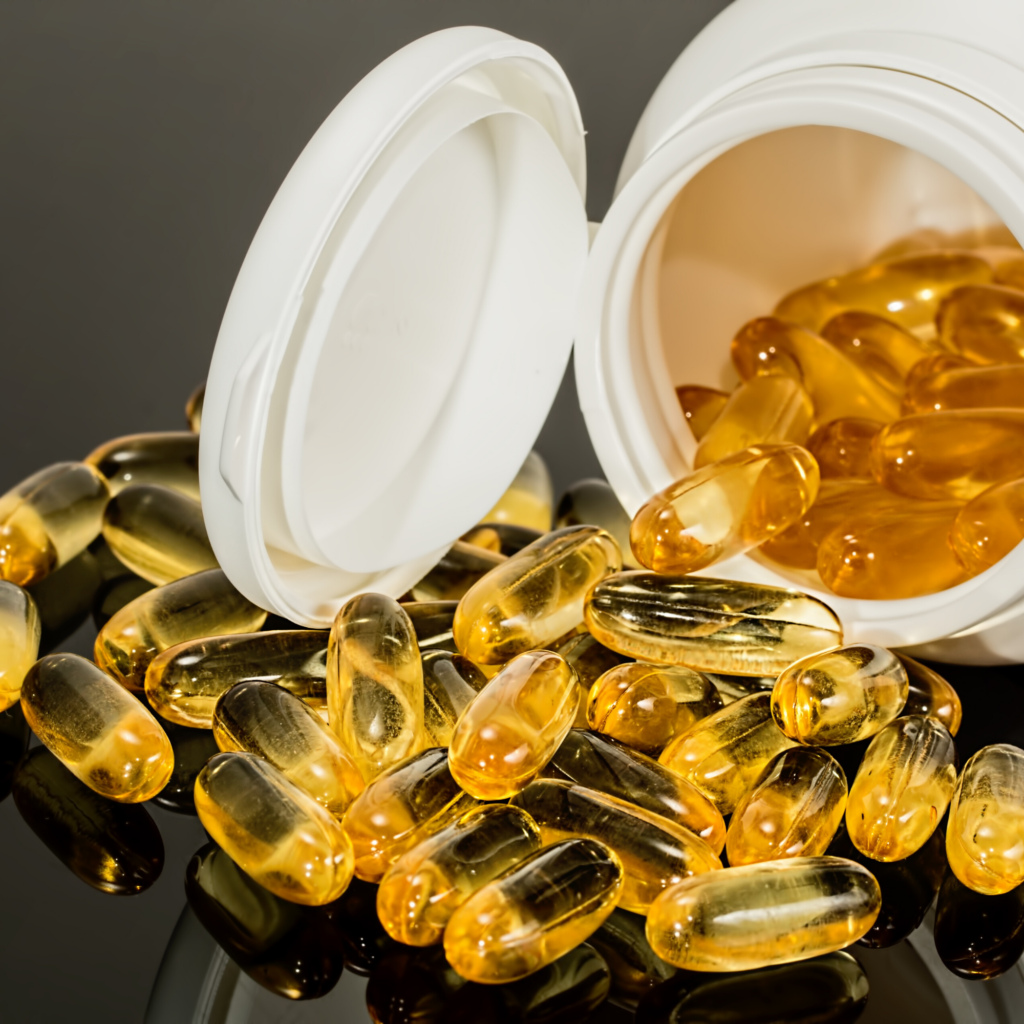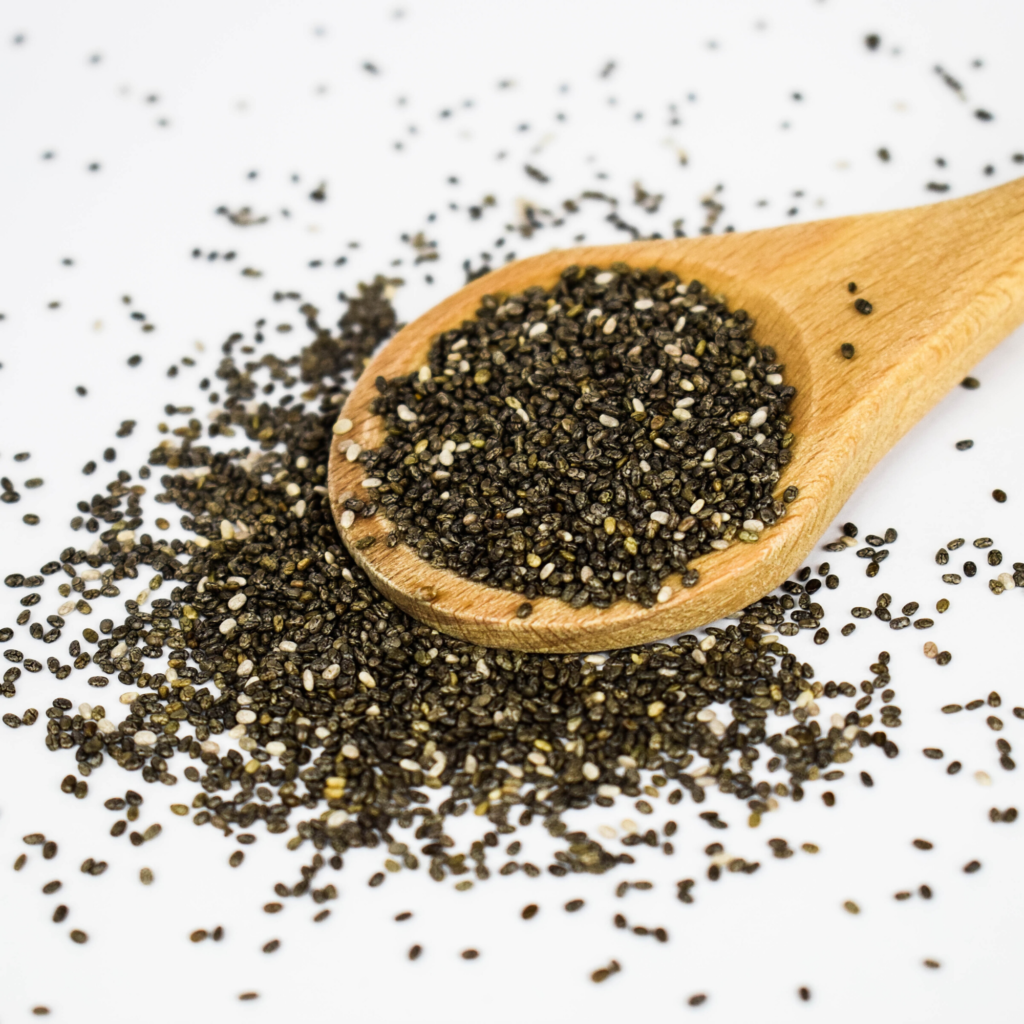With so many supplements available, it’s hard to know which are vital for your health and which are trying to take your money. So, should you be taking an omega-3 supplement?

The answer is YES! You most definitely should be taking an omega-3 fatty acid supplement OR consuming a diet rich in omega-3 fatty acids on a daily basis. First and foremost, let’s talk about the importance of omega-3 consumption. Omega-3 fatty acids may lessen symptoms of depression and anxiety, may reduce the pain and irritation of arthritis, may reduce risk of heart disease and cancer, and works in the body as an anti-inflammatory. Fun fact: guess what causes the development of most chronic diseases and health complications…inflammation in the body!
Our body cannot synthesize omega-3 fatty acids on it’s own. This is why they are considered essential fatty acids and why we must get them from our diet in the form of a supplement or a food source. I just can’t stress the importance of omega-3 fatty acid consumption on a daily basis ENOUGH. Personally, I prefer to supplement with omega-3 fatty acids to make sure that I get what I need, no matter what. Because let’s just be real here, that’s how I roll in life. But, if you prefer to consume food items rich in omega-3s, that’s awesome as well! I’m all about doing what’s best for you.

The Different Types of Omega-3 Fatty Acids
There are 11 types of omega-3 fatty acids, but not all are equal in importance. The 3 most important to regularly consume are alpha-linolenic acid (ALA), eicosapentaenoic acid (EPA), and docosahexaenoic acid (DHA) due to the health benefits listed above. It’s important to note that when ALA is consumed, part of what is consumed is eventually converted to EPA and DHA (the active and beneficial forms of omega-3 fatty acids) and the other part is utilized as an energy source. This is why most supplements only contain EPA and DHA fatty acids and why supplementation can be preferable.
Omega-3 Recommended Daily Intake
- Alpha-linolenic acid (ALA): the recommended intake is 1600mg per day for males, 1000mg per day for females
- Eicosapentaenoic acid (EPA) + docosahexaenoic acid (DHA): the confusion here is that there is not an official recommended intake per day, however, let me guide you as best as I can. Research has shown a minimum of 500mg per day is recommended to not become deficient, 1000-1500mg per day for prevention and to receive the health benefits mentioned above, and 1500mg+ per day to reverse deficiency or due to certain disease states.
*It’s not recommended to take more than 5,000mg of omega-3s per day.

Food Sources of Omega-3 Fatty Acids
Alpha-linolenic acid (ALA): walnuts, chia seeds, flax seeds, hemp seeds, pumpkin seeds, soybeans, tofu, kale, spinach, canola oil, avocado, oats, and navy beans.
Eicosapentaenoic acid (EPA) + docosahexaenoic acid (DHA): mackerel, salmon, cod liver oil, herring, oysters, sardines, anchovies, and caviar.
*If you are not consuming these food items on a daily basis, you need to ask yourself, should you be taking an omega-3 supplement?
The Downside of Taking Fish Oils
The number one concern expressed about consuming fish oil is that the taste is not always the most appetizing. Dependent on the supplement you are consuming, if it is not flavored, any burping after consumption will make you relive that fish oil taste over and over again. Is that a reason to not consume fish oils, though?! Absolutely not! The benefits are priceless. Many brands have coated their capsules with flavors and liquid forms come flavored these days. I always recommend the Nordic Naturals brand of Omega 3s, their capsules are lemon flavored and I never burp up that fish oil taste.
Regardless of which brand you select, one thing to keep in mind is that not all fish oil supplements contain the same amount of EPA + DHA. Use the recommended daily intake above to investigate if the supplement is of quality and meets your goals.
Do you have more questions regarding omega-3 fatty acids?
Feel free to comment below with any further questions or concerns.


Leave a Reply